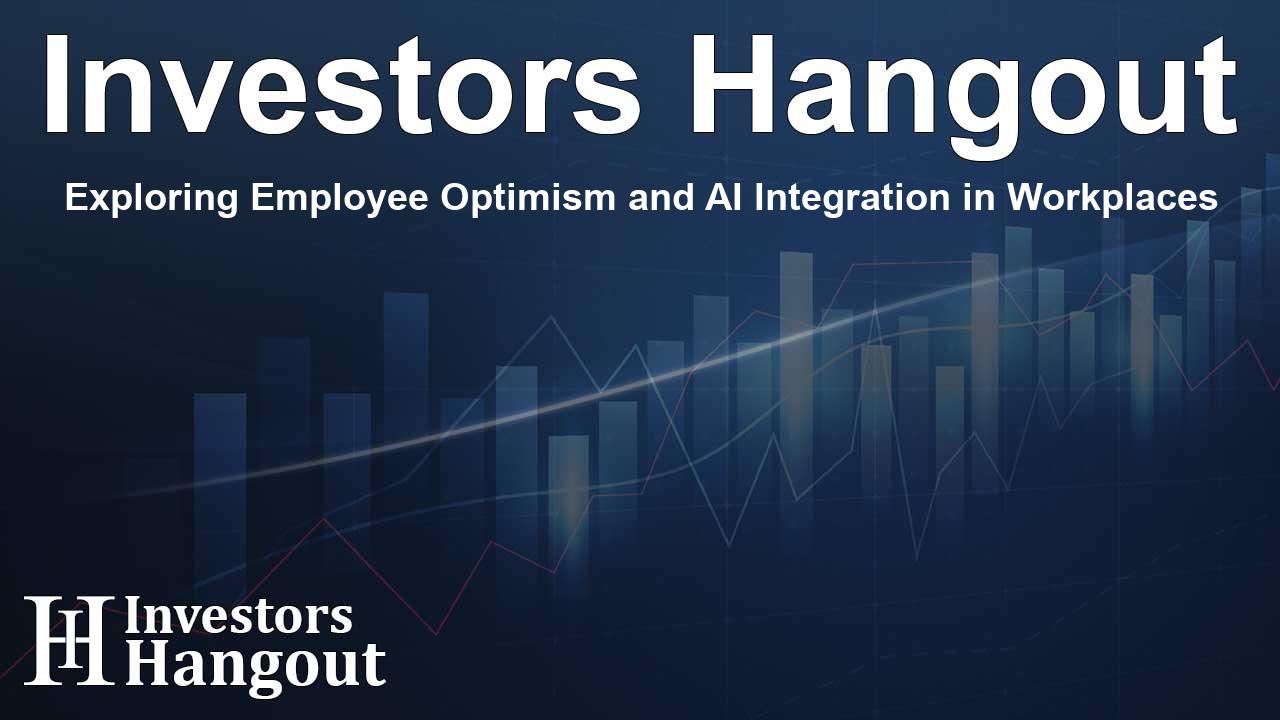Exploring Employee Optimism and AI Integration in Workplaces

AI in the Modern Workplace: A Positive Outlook
AI's emergence in the workplace is a topic of significant interest and discussion. Many workers are recognizing the transformative potential of Artificial Intelligence (AI) in enhancing their professional experience. Recent survey findings reveal that there is a growing optimism among employees regarding AI's role, emphasizing the importance of guidance and structured training from employers.
Survey Insights on Employee Perspectives
A survey conducted by the global learning technology company D2L, in collaboration with Morning Consult, has shed light on employee attitudes toward AI integration in their work. The data indicates that American workers see AI as a valuable asset rather than a threat to their jobs. This perspective is critical, as it highlights their eagerness to embrace technology that can boost efficiency and support their overall success.
Understanding the Value of AI
According to the survey, a significant 69% of employees agree that AI can enhance their job performance. This is particularly encouraging as many workers are excited about the prospect of AI automation, with 65% looking forward to AI assisting with repetitive tasks. Furthermore, 68% anticipate that such support could provide them with more time to engage in strategic and creative work—a reflection of their desire for deeper involvement in meaningful projects.
Concerns and Expectations
Interestingly, despite the optimism, there are underlying concerns. Only 33% of respondents expressed fear that AI might eventually replace their jobs, and 38% believed it would have minimal impact on their day-to-day roles. This suggests a cautious approach to the rise of AI, highlighting the need for clarity and communication from employers regarding AI's integration.
The Training Gap in AI Utilization
The survey results also revealed a discernible gap in training and support for AI tools within organizations. While 64% indicated that their companies provide AI resources, only 25% strongly agreed that their employers have a clear vision for its application in their jobs. It is concerning that although 61% reported access to formal training, a substantial 58% felt they were left to navigate AI learning independently without employer-led initiatives.
Empowering Employees with Structured Support
John Baker, President and CEO of D2L, emphasized the opportunity for employers to invest in structured support for their workforce. He underscored the potential of AI in not just handling repetitive tasks but also in elevating the overall work experience. With the right learning platforms and targeted training programs, employees can harness the full capabilities of AI, enabling them to focus on intrinsic human strengths like creativity and communication.
Looking Ahead: Future Initiatives
As D2L prepares to release its annual White Paper, titled "Upskill with Purpose: Creating a Future-Ready Workforce," there is a keen interest in exploring employee and employer priorities in the evolving landscape of corporate learning. The upcoming paper promises to delve deeper into essential topics such as non-traditional learning opportunities and the need for flexible training that resonates with today's workforce.
Executive Summit for Thought Leadership
To further discuss these findings, D2L will host the Executive Summit, a pivotal event that gathers thought leaders in corporate education on key themes regarding the future of workplace learning. This summit presents an invaluable opportunity to engage with peers, and discuss insights on educating for a rapidly changing world.
Frequently Asked Questions
What did the D2L survey reveal about employee attitudes towards AI?
The survey revealed that a majority of employees view AI positively, seeing it as a tool to enhance their job performance and creativity rather than a threat to their employment.
How many employees feel that AI will help them do their jobs better?
About 69% of respondents believe that AI will assist them in performing their jobs more effectively, reflecting a strong sense of optimism towards AI integration.
What are the main concerns employees have regarding AI?
While many are optimistic, concerns persist, with 33% fearing job displacement and 38% believing AI would scarcely affect their usual work.
What percentage of employees received formal AI training?
Although 61% of employees reported having access to formal AI training, more than half (58%) felt unsupported in their learning journey.
What is the focus of D2L's upcoming White Paper?
D2L's White Paper, "Upskill with Purpose: Creating a Future-Ready Workforce," aims to explore evolving priorities in corporate learning and the demand for flexible training options.
About The Author
Contact Lucas Young privately here. Or send an email with ATTN: Lucas Young as the subject to contact@investorshangout.com.
About Investors Hangout
Investors Hangout is a leading online stock forum for financial discussion and learning, offering a wide range of free tools and resources. It draws in traders of all levels, who exchange market knowledge, investigate trading tactics, and keep an eye on industry developments in real time. Featuring financial articles, stock message boards, quotes, charts, company profiles, and live news updates. Through cooperative learning and a wealth of informational resources, it helps users from novices creating their first portfolios to experts honing their techniques. Join Investors Hangout today: https://investorshangout.com/
The content of this article is based on factual, publicly available information and does not represent legal, financial, or investment advice. Investors Hangout does not offer financial advice, and the author is not a licensed financial advisor. Consult a qualified advisor before making any financial or investment decisions based on this article. This article should not be considered advice to purchase, sell, or hold any securities or other investments. If any of the material provided here is inaccurate, please contact us for corrections.
